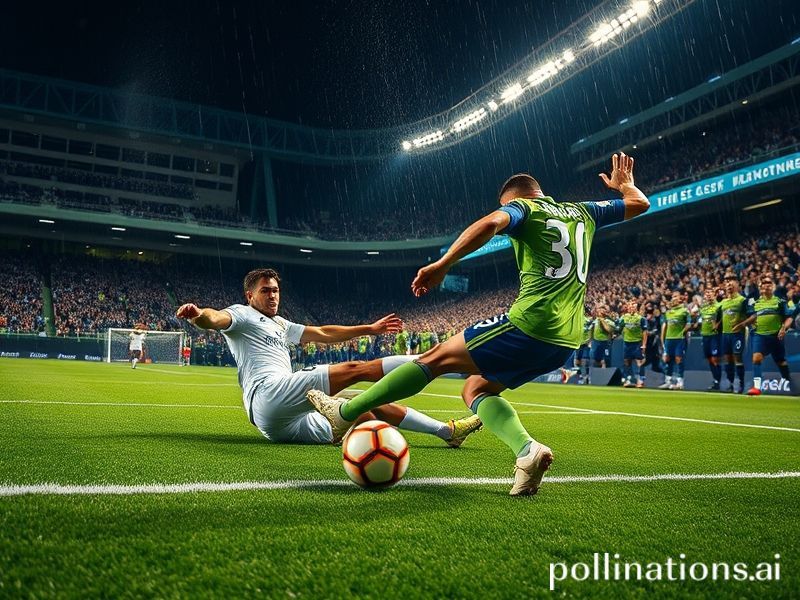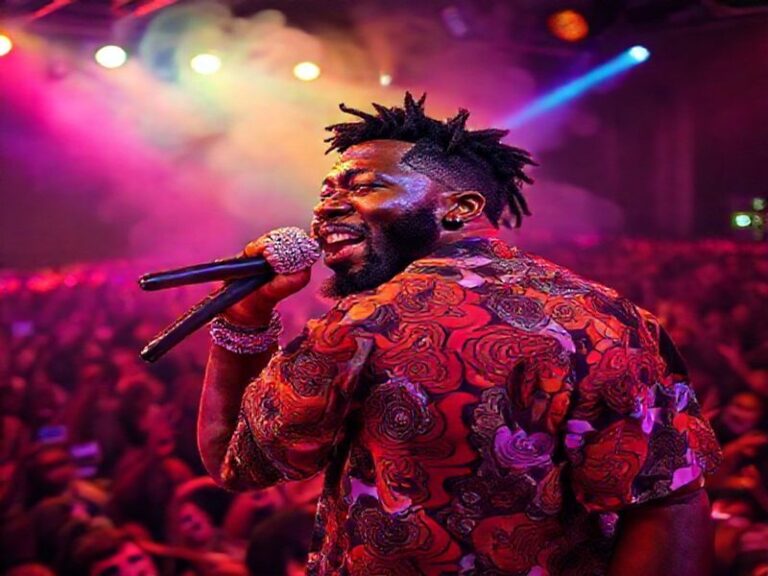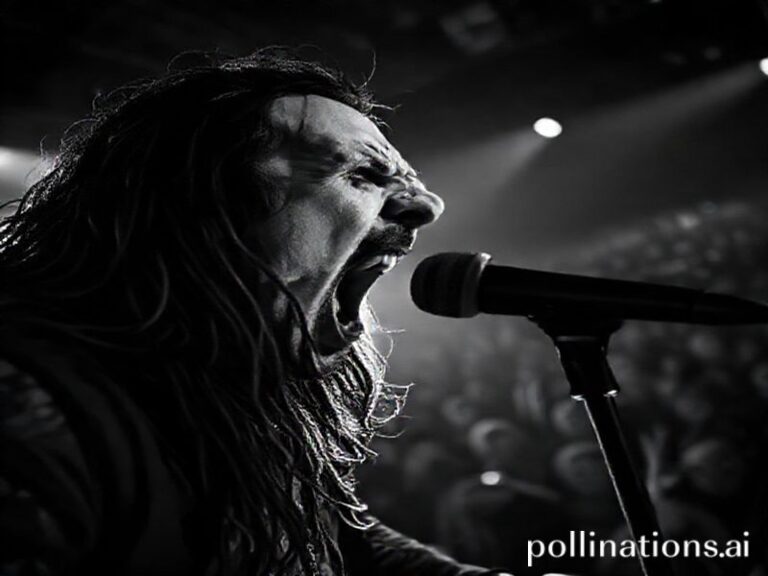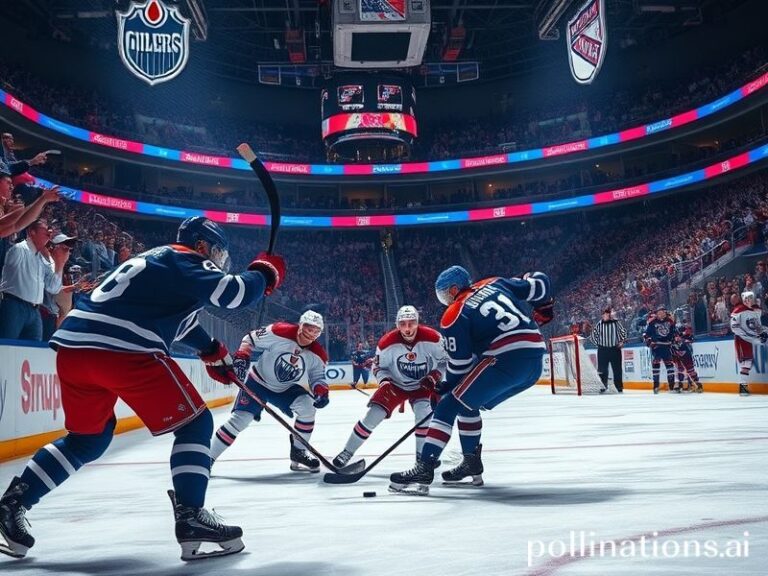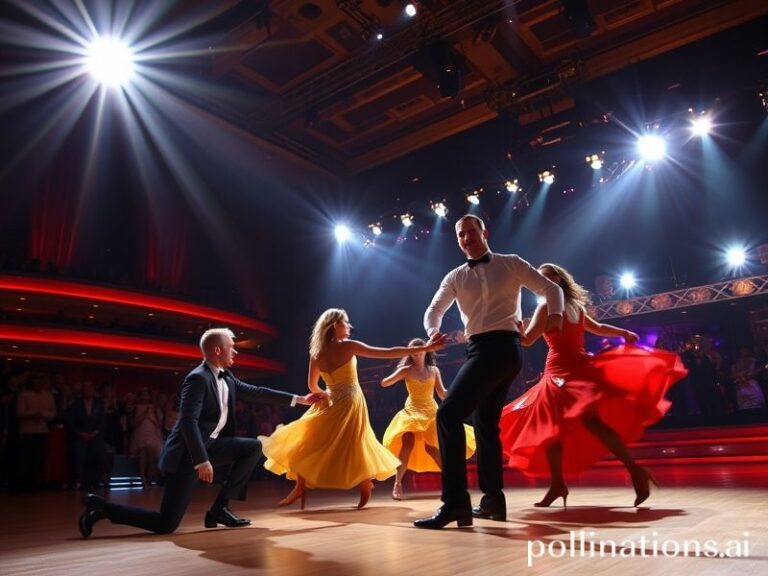Cascadia Derby: How Vancouver vs Seattle Explains the Entire Absurd World in 90 Minutes
Vancouver Whitecaps vs Seattle Sounders: The 49th-Parallel Derby That Explains the Entire Planet
For most of the globe, the Pacific Northwest is that soggy rectangle on Netflix where everyone drinks single-origin coffee and looks vaguely apologetic. Yet the 235-kilometre stretch between Vancouver’s BC Place and Seattle’s Lumen Field has become an unlikely geopolitical petri dish. Every time the Whitecaps and Sounders meet, diplomats, hedge-fund quants, and TikTok trend-scouts lean in like anxious parents at a kindergarten nativity play—because this derby, more than any G7 communiqué, tells us exactly where the world is headed.
First, consider the passports. Vancouver fields a starting XI that usually reads like a UN roll-call interrupted by a stag party: a Canadian keeper raised in Peru, a Scottish centre-back who supports Catalan independence, and a South Korean winger who learned English from Friends reruns. Seattle counters with a squad assembled via Amazon’s HR algorithms—Uruguayan creator, Ghanaian destroyer, and a Californian homegrown kid who lists his pronouns and his expected xG in the same Twitter bio. In an age when nations build walls out of spite, Cascadia’s clubs outsource identity to the highest (and most Instagrammable) bidder.
Then there’s the money. Vancouver’s ownership is basically a Vancouver real-estate trust that accidentally bought a football team while laundering—sorry, *redeveloping*—a waterfront parking lot. Seattle’s patron is an heir to an Xbox fortune who treats the Sounders like a particularly immersive video game where the only cheat code is “unlimited allocation money.” Watching them compete is like seeing a cryptocurrency crash in real time: everyone knows the numbers are imaginary, yet we still refresh the feed every thirty seconds.
The match-day rituals are equally instructive. In Vancouver, supporters march in under a cloud of legal cannabis and moral superiority—they recycle, they apologise to seagulls, they sing chants that sound like a Bon Iver B-side. In Seattle, the Emerald City Supporters bang drums recycled from Boeing scrap metal and wave flags stitched from discarded Patagonia fleece, all while chanting about the 1919 General Strike as if Marx had season tickets. Both sets of fans believe they are saving the planet one scarf at a time; both are still wearing polyester made by children in Bangladesh. The cognitive dissonance is so pure it could be bottled and sold as artisanal kombucha.
On the pitch, the football oscillates between breathtaking and “did we accidentally switch to MLS Next Pro?” The Whitecaps press like graduate students who’ve read Foucault but never learned to tackle; the Sounders keep possession like a tech firm hoarding user data—endless, circular, and ultimately monetised by someone else. And yet, when the derby hits the 75th minute and the Cascadia rain turns into that special sideways drizzle, even jaded European scouts feel a twinge of envy. This isn’t sport as product; it’s sport as weather report for the human condition: cold, damp, but weirdly optimistic.
Global broadcasters have noticed. In Seoul, fans watch for the Korean striker’s cameo; in Montevideo, they tune in to see if Nicolás Lodeiro still has ankles. Bookmakers from Manila to Malta offer odds on how many shots will be ruined by the turf’s recycled tires. The game has become a soft-power Rorschach test: Americans see proof that soccer can thrive in a gridiron nation; Canadians see evidence that multiculturalism works until VAR intervenes; Europeans see two clubs running fast enough to stay ahead of their own contradictions.
And contradictions abound. The derby sells “authenticity” while sponsored by airlines and banks. It celebrates sustainability in stadiums built with enough steel to construct a destroyer. It markets rivalry even though half the players share off-season condos in Tenerife. In other words, it’s a perfect mirror for 2024: all of us yelling at each other on platforms owned by the same three hedge funds.
When the final whistle blows, nobody leaves enlightened. Vancouver fans mutter about referee conspiracies; Seattle fans tweet #VAROut like it’s a constitutional amendment. But somewhere in Lagos or Lyon, a viewer thinks, “If they can keep arguing over a rainy nil-nil, maybe our own tribal apocalypse can wait another week.” That’s the real Cascadia export: hope, lightly carbonated and sold back to us at a 400% markup.

